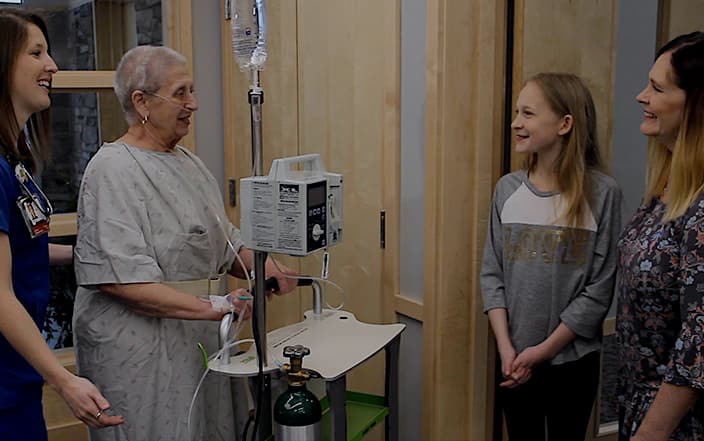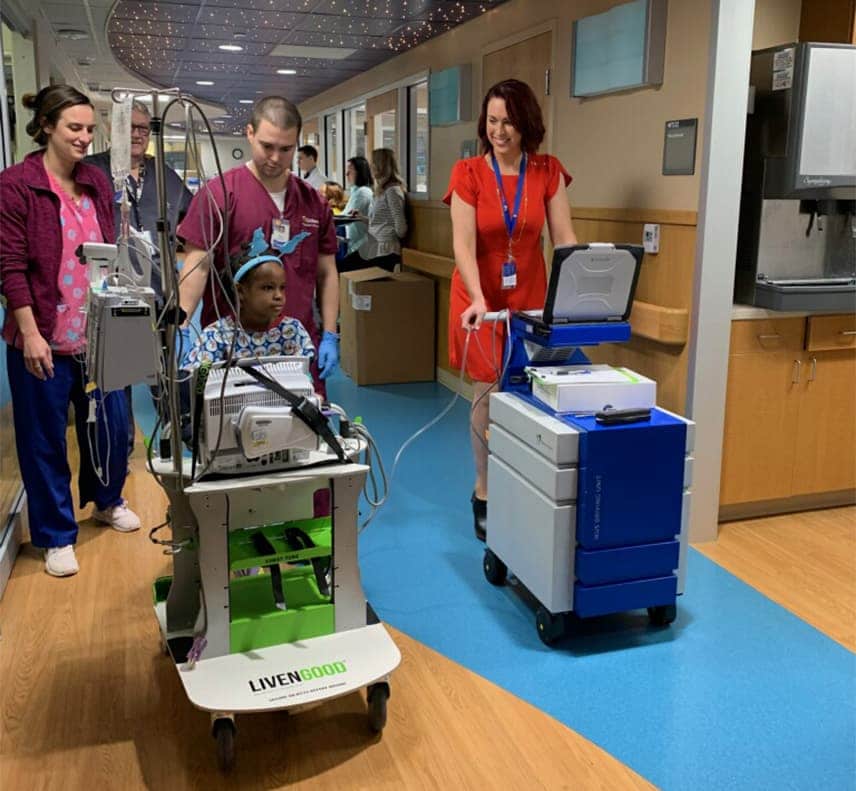Emotion & Early PATIENT MOBILITY
There are many emotional benefits of early patient mobility. One critical factor in determining a patient’s capacity for early mobility is their mental state, which nurses judge on a case-by-case basis. But it turns out that early mobility can actually stimulate patients’ mental well-being and improve their emotional well-being, which immediately improves the patients’ quality of life, while reducing the serious risk of delirium and decreasing overall recovery time.
Physical & Mental Benefits Linked
Key Facts:
ABCDEF Protocol
To improve patient outcomes and reduce hospital costs, the Society of Critical Care Medicine officially recommends that all intensive care units adopt the “ABCDEF” Protocol:
- Assess, Prevent, and Manage Pain
- Both Spontaneous Awakening Trials & Spontaneous Breathing Trials
- Choice of Painkillers and Sedatives
- Delirium: Assess, Prevent, and Manage
- Early Mobility & Exercise
- Family Engagement and Empowerment
Reducing Delirium in Patients
- To decrease the incidence and duration of delirium, it is recommended that intensive care unit (ICU) staff perform early mobilization of adult patients whenever it is feasible. (Barr 2013)
- To limit the incidence of physical, cognitive, and psychological disabilities that can result from critical illness, the Agency for Healthcare Research and Quality strongly endorses early mobilization for all patients, whenever it is feasible.
- Early mobility decreases the occurrence, severity, and duration of delirium in patients. (Dirkes 2019, Krupp 2019, Taito 2016, Banerjee 2011, Schweickert 2009)
- There is a very strong correlation between delirium, increased length of hospital stay, and increased chance of death in adult ICU patients. Delirium is also associated with a development of cognitive impairment after discharge from the ICU. (Barr 2013)
- For patients who have experienced an acute stroke, early mobilization decreases the risk of depression and anxiety. (Cumming 2008)
- While early mobility studies in pediatric units are still new, pediatrician Kristina Betters M.D. has gone on record to say: “Anecdotally, medical staff members are seeing their patients improve. Patients are less sedated and more interactive, and families are also engaging more with their children. Oftentimes parents feel helpless in the ICU, and this is one way they can help their child get better.”
Learn more about Livengood Medical Mobi Solutions.















